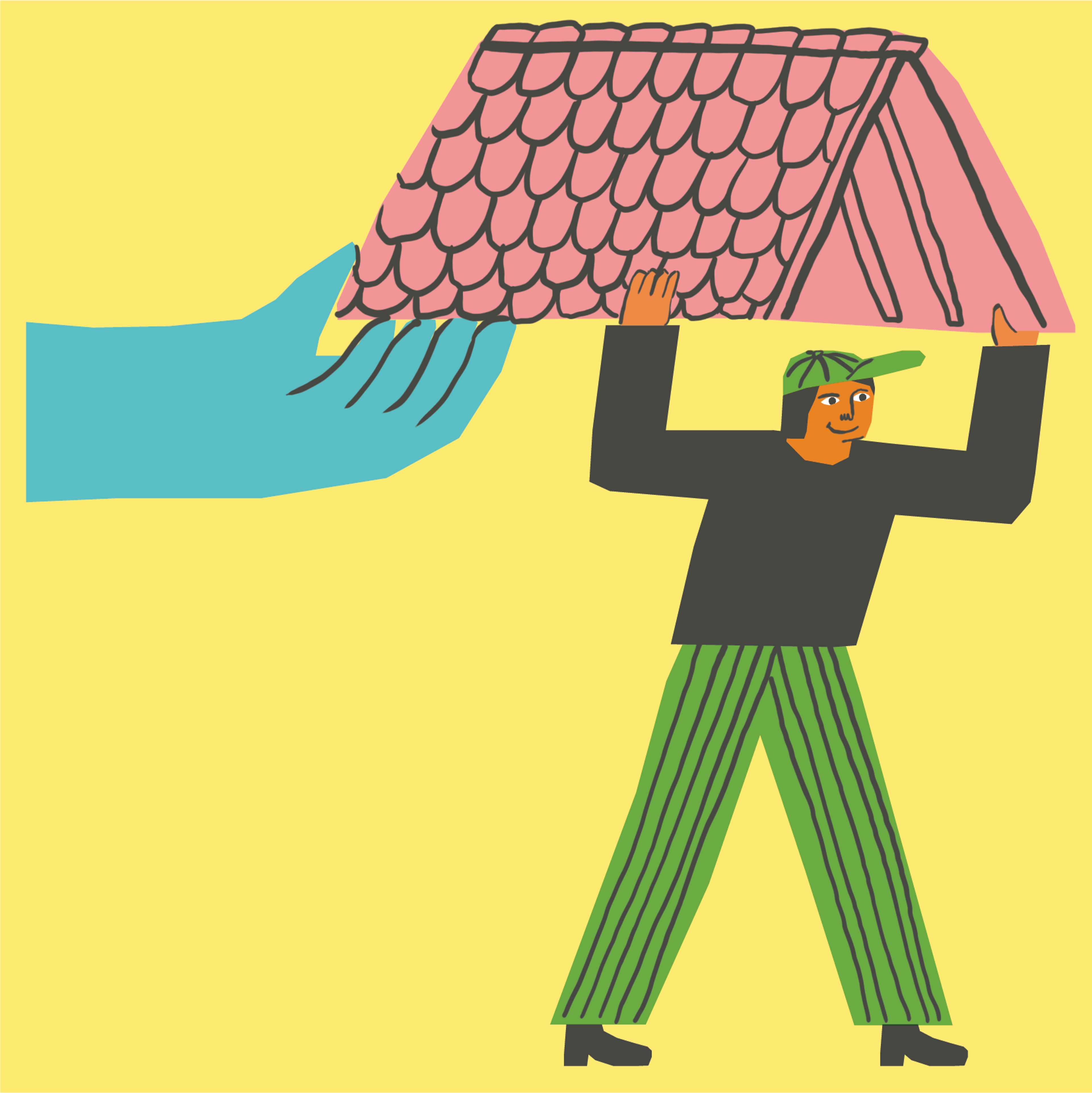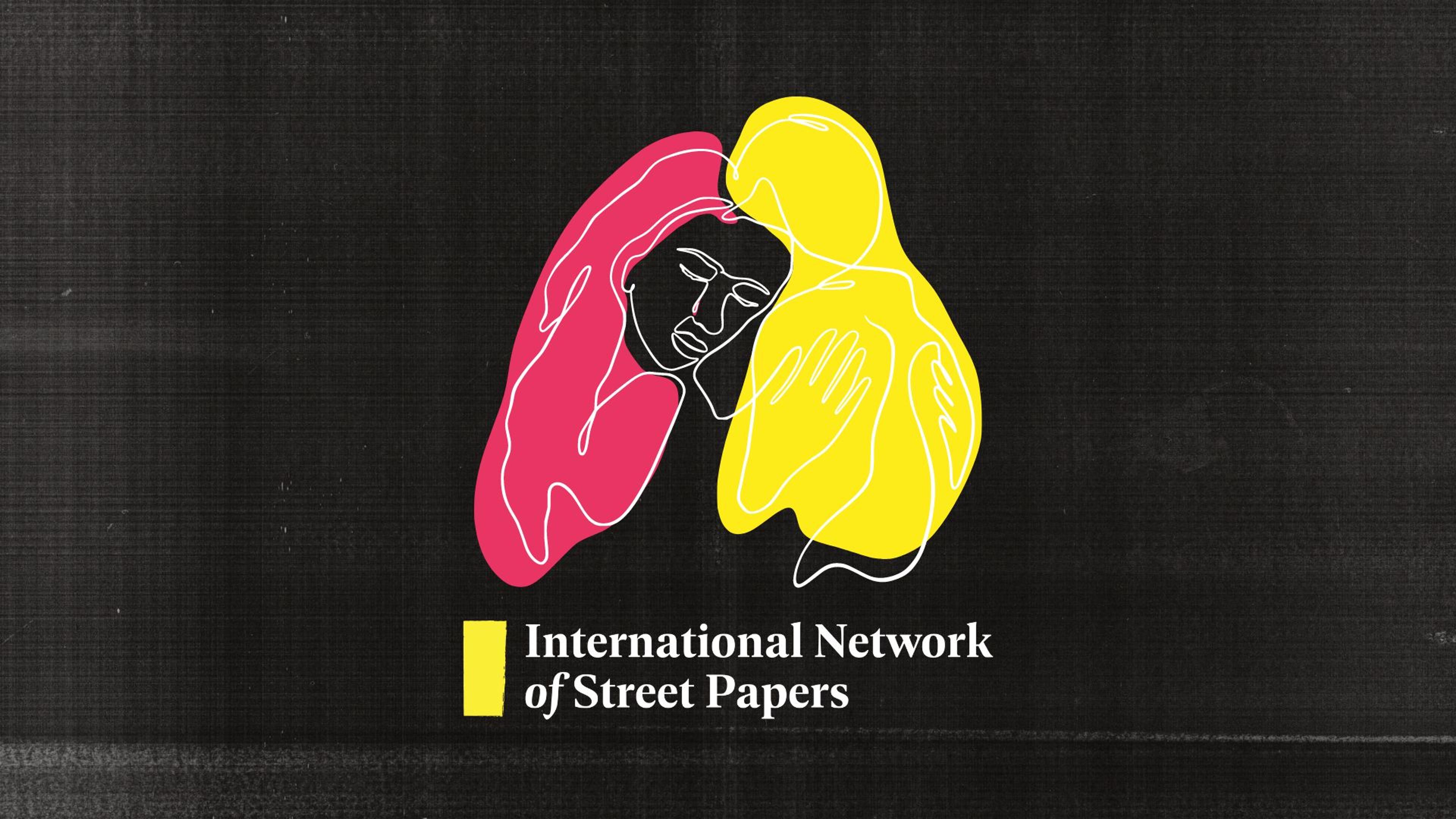Danni's long road from homelessness to a place of her own
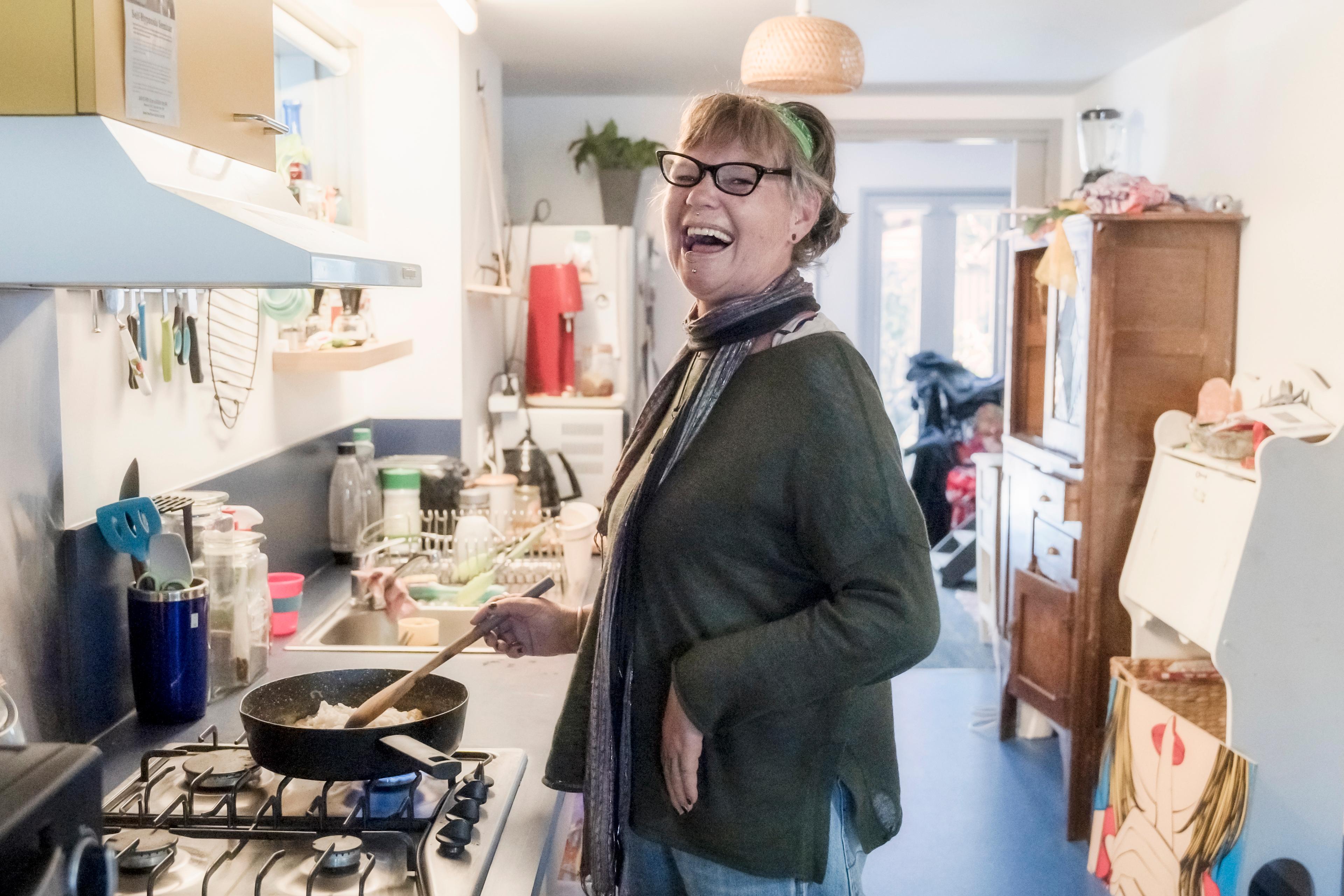
Photo by Christina Simons
By Amy Hetherington
- News
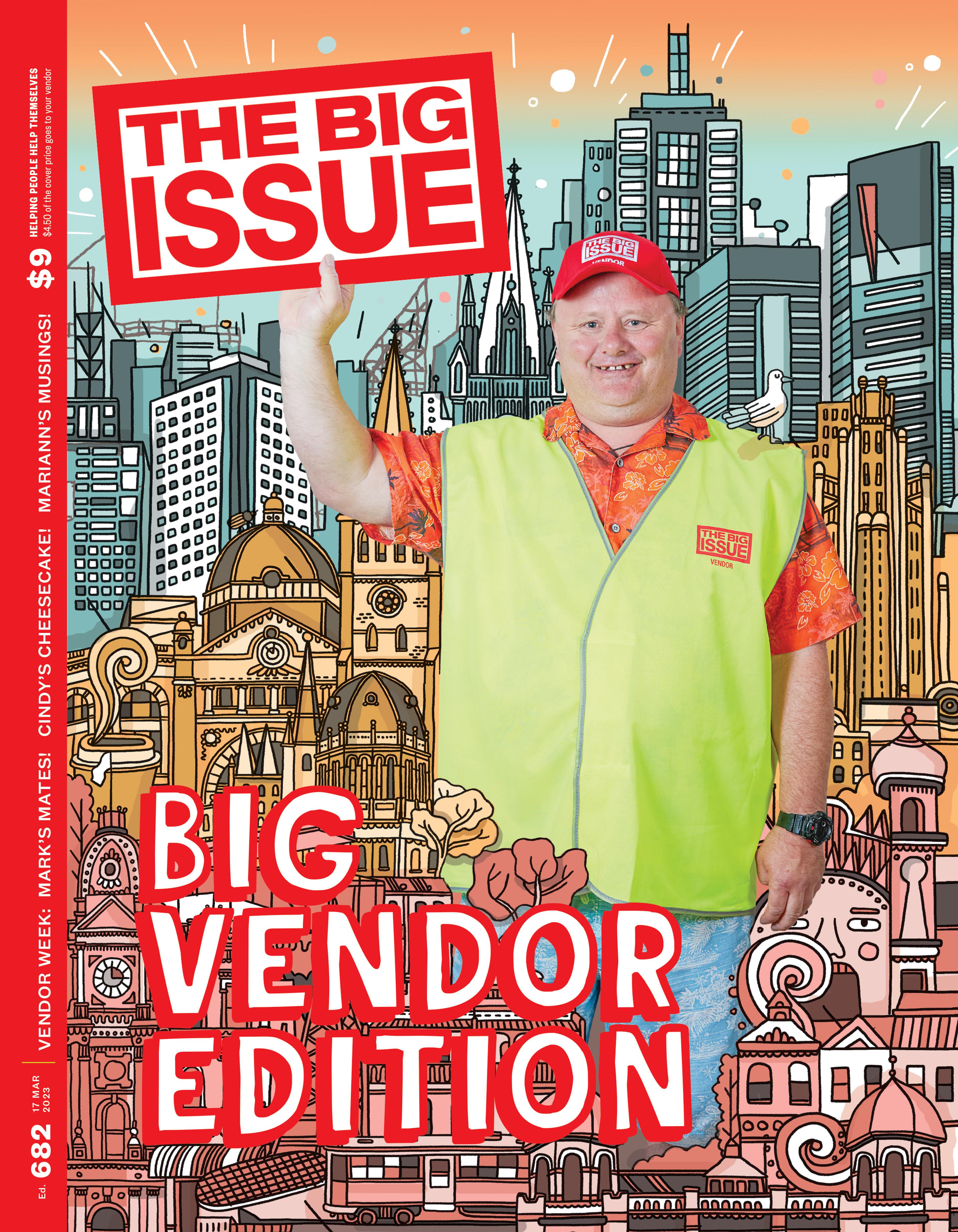
What happens after homelessness? The Big Issue Australia talks with Danni about her 20-year journey from sleeping rough to being housed.
“Hello, come in!” beams Danni, as she waves us into her leafy front yard in inner-city Melbourne. Her sweet-faced moodle Ruby weaves between our legs, angling for a pat. Among the pot plants and cacti reads a sign: “A house is not a home without paw prints.”
For Danni, it’s been a long, long wait for this home. Too long.
Inside, Danni takes us on a tour of her unit, which she has turned into a sanctuary since moving in four months ago. It feels inviting, decked out with artworks, op shop finds and other personal treasures, including a gorgeous teal couch (“I’d never bought new furniture before!”). Thai chicken curry simmers on the stove as we head out the back to what Danni declares “the best bit”. French doors fringed with beads open out to a private courtyard where pink fuchsias bloom and a tomato plant flourishes. “It brings the possums,” says Danni. “I have to deal with possums now! I’m just so proud to have this little place to call home.”
It’s clear how much this home has changed Danni’s life, after more than two decades of homelessness. “We are super happy, aren’t we, Rubes?” she says, scooping her dog onto her lap as we all take a seat around the dining table (sourced from Marketplace just last week). “I love it. I think I’ve hit the jackpot. I don’t want to say, ‘Worth the wait’ – I had to wait 20 years – but I got this! I think I’m really lucky,” she beams.
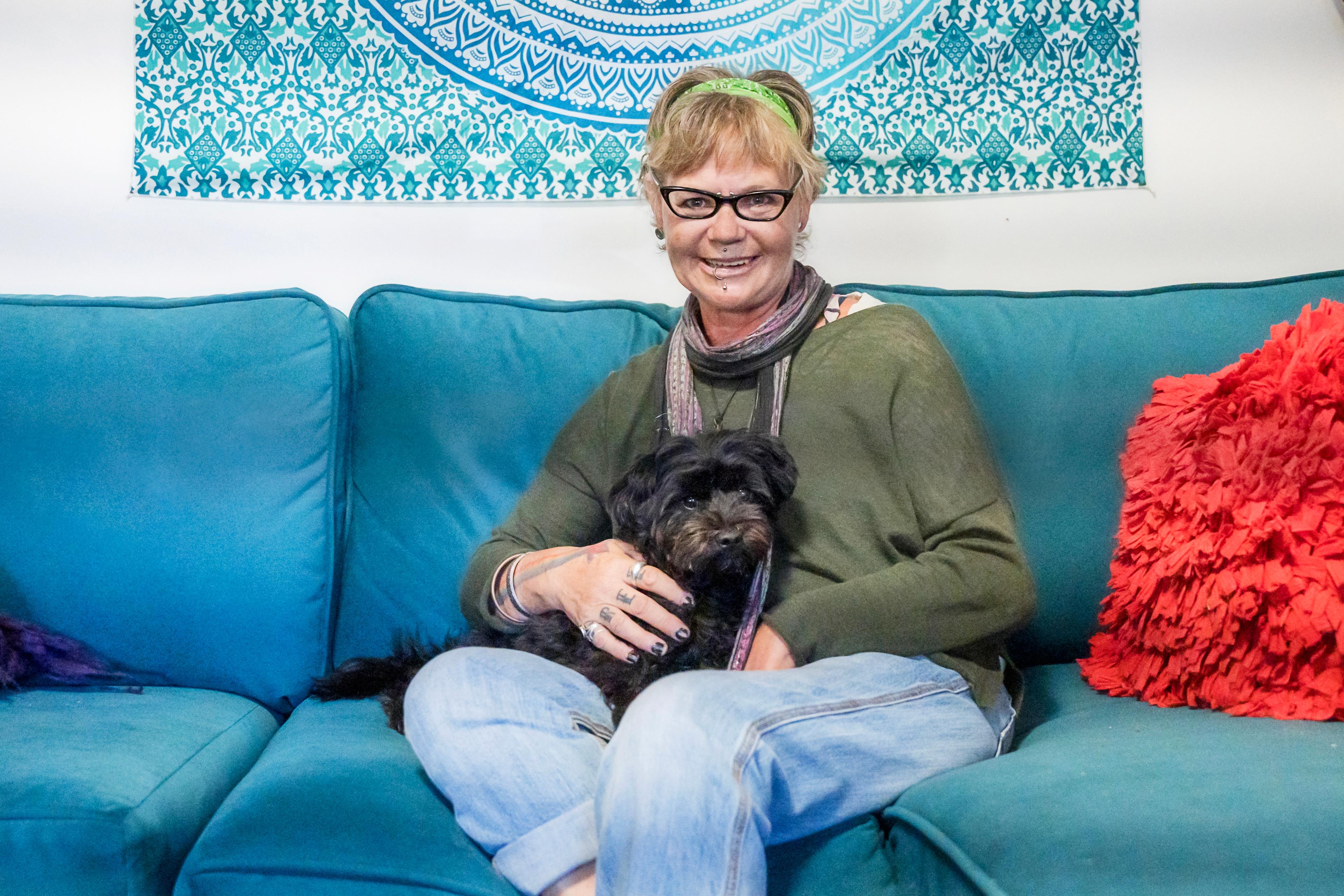
Danni and her Moodle puppy Ruby in her home in Melbourne. Photo by Christina Simons.
Danni says it’s the small things that have made a huge difference, like being able to buy, store and cook healthy food. Doing her laundry without fear it will be stolen, or that someone will throw bleach in the machine just because they can. Being able to have friends over. Having her own set of keys. “It’s peace of mind that you can come somewhere, lock the door and you’re safe. It’s massive,” she says. “I can come home from work, have a cuppa and snuggle with Ruby I’m relaxed. I’m not like, ‘Oh, who’s in the hallway doing what? Where am I gonna sleep tonight? How am I going to get there?’ It’s a flat-out job. You can’t be looking for a job while you’re homeless. Because you’re just surviving.”
Having a permanent home also means Danni is able to fully utilise her NDIS package. Her support worker comes to help with the weekly shopping and food prep.
Danni has also noticed a change in the way people treat her – even with simple things. When she has a maintenance issue now, someone responds. “Just the difference in respect. I’m taken seriously. I’m believed. I’m a priority. All those little things that I didn’t have before – you don’t notice it until you’ve got it,” she says. “It obviously makes you feel better about yourself.”
She has also built a community around her. People she’s met at the dog park, who know her as “Ruby’s Mum” – one of whom gave her a washing machine, a fridge and an air fryer. “I was very lucky. I had a lot of good people in the community willing to reach out give me a hand.”
But the biggest surprise for Danni was the emotional outpouring that came with finally feeling like she belonged somewhere. “The first night I got here, I was so overwhelmed, I couldn’t even work out how to turn on the TV. I literally sat in that room with Ruby and cried and cried for two nights in a row. Because the trauma of being homeless still affects me,” she says, apologising for her tears. The emotions are still raw. “For 20 years, I’d held my breath. You’re just in survival mode. I didn’t belong anywhere. Then I got here, and I breathed. I didn’t realise I hadn’t breathed in 20 years.”
Danni first experienced homelessness in her early thirties. She was working full-time as a roadie alongside the Red Hot Chili Peppers, the Foo Fighters – some of the world’s biggest bands. She was also struggling with undiagnosed bipolar and psychosis. “That led me to be homeless because I thought people were after me, coming into my house. I couldn’t function because I was not in reality,” she says. Yet nobody around her noticed her mental health deteriorating. “I had nobody close enough to say, ‘Hey, there’s a problem there.’
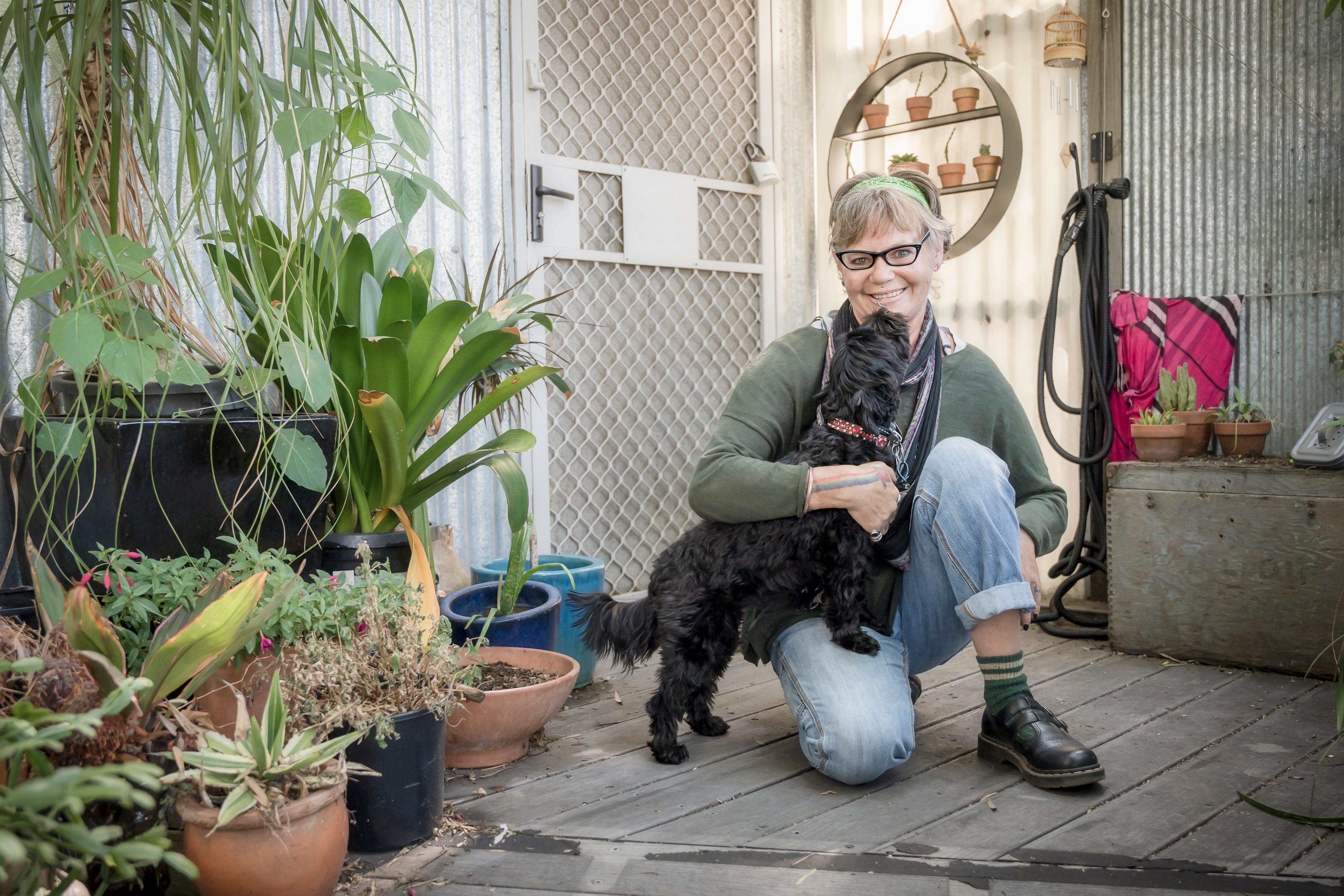
Photo by Christina Simons
“I lost everything,” continues Danni, who regularly shares her experience with students in The Big Issue Classroom, where she’s employed as a guest speaker. “It kind of happened overnight, but it didn’t. Once you’ve lost all your possessions, and you’re truly homeless, it’s such a hard place. Not just physically, like to locate yourself somewhere, but the mental side of it is so traumatic. It really damages you. And if you’ve got mental health issues, it just compounds them.”
She moved around Australia, staying in squats, boarding houses, shelters, share houses and temporary accommodation. She’s had periods of rough sleeping. At 34, Danni was living in a park, “under a Moreton Bay fig tree,” when she had stroke. As she tells it, that stroke led her to hospital, which led to sobriety, which led to a mental health diagnosis. “Then it took years and years to get the right medications to work. And then I had half a chance of having a life.”
For the past seven years, Danni had been living in community housing. While it was a roof over her head, it was just that. A single room with shared facilities. No legally binding lease. No sense of security. “There was a lot of crime in my building. A lot of addiction,” she tells me. “So, for me, who had gone there clean, I relapsed for quite some time. I had to start again with my sobriety. It was hard. Because I’d done so well.”
All the while, Danni was one of 54,945 households in Victoria on the waitlist for public and community housing – a list that’s ballooned by 55 per cent in five years. Nationally, 175,600 households are waiting for a home, with an average wait time of 10 years in some states. And yet, over the past 30 years, the social housing supply has almost halved. What’s more, the University of NSW City Futures Research Centre reports that more than 640,000 low-income households were not in appropriate housing on census night – either experiencing homelessness, overcrowding or housing stress (spending more than 30 per cent of their income on rent). They project this figure will grow to 940,000 by 2041 if housing needs are unmet.
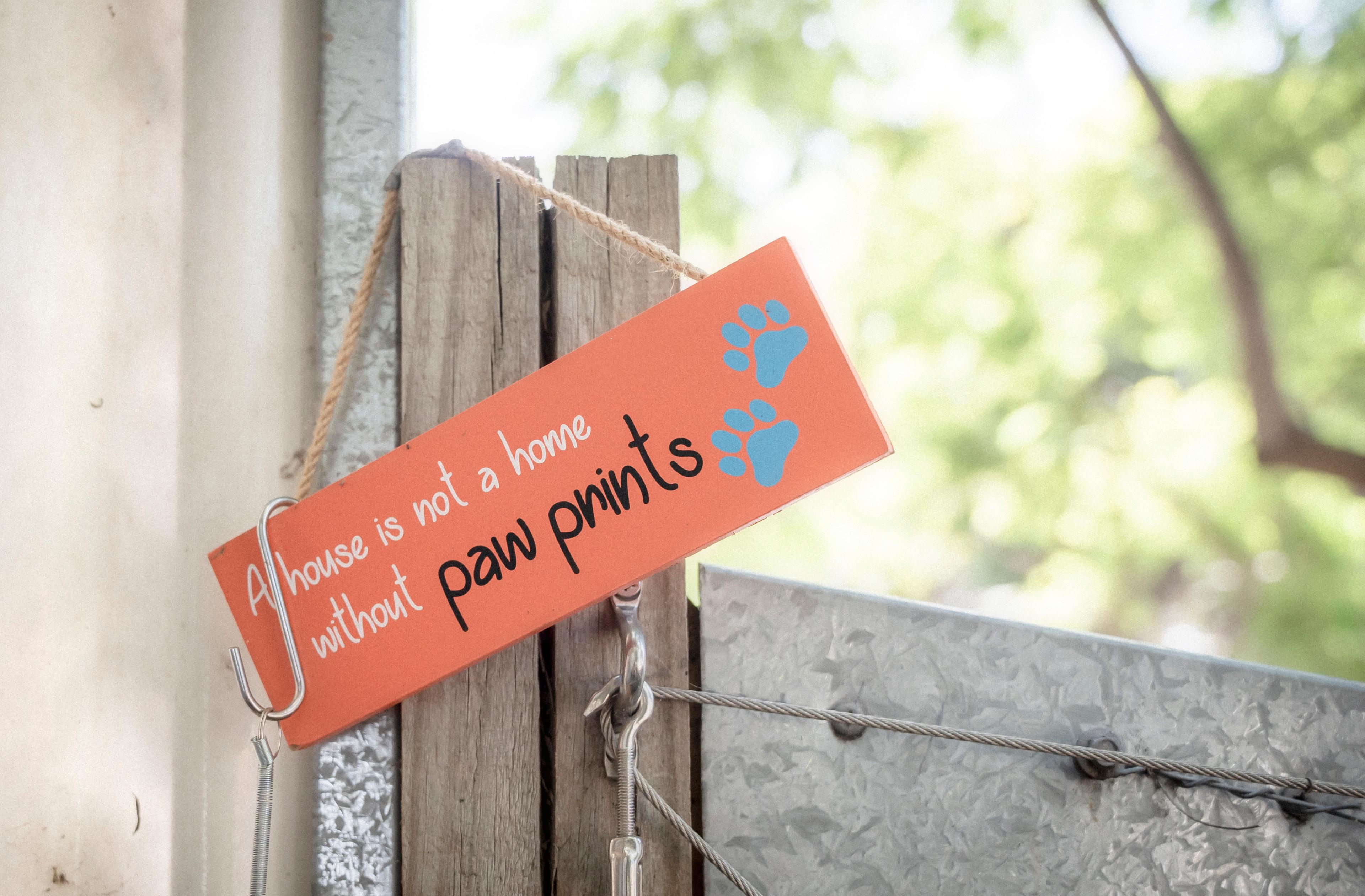
Danni's little personal touches around her new home in Melbourne. Photo by Christina Simons.
For Danni, becoming housed was a long, exhausting process. “I kept ringing, because I think if you rattle your cage enough, they’ll look at you. I kept getting told I had a unit coming up, then they gave it to somebody else that was ‘more in need’. And I kept thinking, Who could be more in need?
“That was really hard. My life was in other people’s hands. That’s the real essence of how you feel…you just become paperwork to somebody. You become a job to somebody, shuffled around a system that is so broken.”
Once she turned 50, Danni got on the priority list. She says she also “got lucky” with some “good workers” who followed up her paperwork, along with a transitional officer who assisted with her move. “I feel like I deserve this,” she says. “I’m not shy to say that. When I was in a women’s refuge, the counsellors would ask, ‘What’s one of your goals?’ My answer was, ‘I just want to belong to a community.’ I just wanted to be somewhere long enough to belong,” she says.
This year, on Valentine’s Day, Danni’s neighbours invited her out for drinks. “All the single women and their dogs went to a pub,” she says. “I don’t drink, but it was nice to be included. From that, we’ve gone to Drag Bingo. I’ve never done things like that before. Now it’s what I do: Thursday is Drag Bingo night. It’s very cool.”
Welcome home, Danni.
Support our News Service
We believe journalism can change lives, perceptions, and society - underpinning democracy for a more equitable world. Learn more about the INSP News Service and how to support it here.
